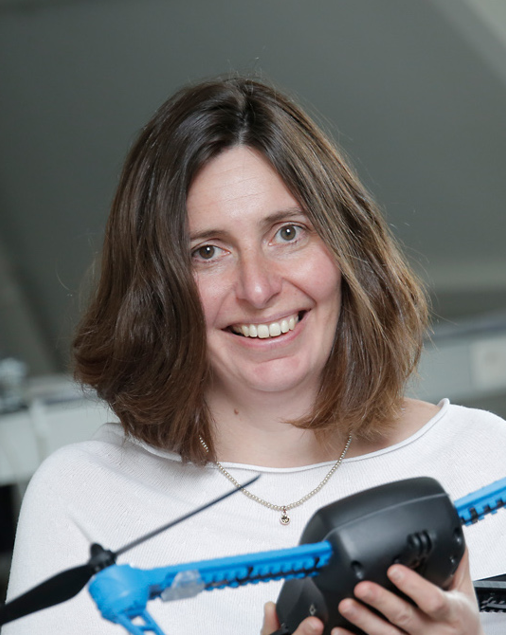Learning from Urban Mobility Data in the Era of AI: Challenges and Prospects
Abstract: Heterogeneous human urban mobility data are being collected at unprecedented rates and are used extensively in several applications, from route planning and location-based services to urban planning and traffic management. We focus on the analysis of GPS trajectory data, with or without additional data sources. We present recent advances and highlight research challenges concerning the development of novel techniques for the problems of travel time estimation, multi-modal routing and multi-objective routing that utilize GPS trajectory data in real-time.Bio: Dimitrios Gunopulos got his PhD from Princeton University in 1995. He is currently a Professor and the Department Chair at the Department of Informatics and Telecommunications, University of Athens. He was a Postdoctoral Fellow at the Max-Planck-Institute for Informatics, a Researcher at the IBM Almaden Research Center, a Visiting Researcher at the University of Helsinki, an Assistant, Associate, and Full Professor at the Department of Computer Science and Engineering in the University of California Riverside, and a Visiting Researcher at Microsoft Research, Silicon Valley Lab. His research is in the areas of Fairness and Explainability in AI, Data Mining of Spatiotemporal Data, Indexing in Databases, Machine Learning, Peer-to-Peer systems, and Geometric Algorithms. He has co-authored over a hundred journal and conference papers, seven patents, and a book. He was the recipient of the 2020 IEEE ICDM Outstanding Service Award. His research has been supported by NSF (including an NSF CAREER award), the DoD, the Institute of Museum and Library Services, the European Commission, the Greek General Secretariat of Research and Technology, AT&T, Nokia, a 2015 Yahoo Faculty Award and a 2017 Google Faculty Award. He has served as a General Co-Chair in SDM SIAM 2018, SDM SIAM 2017, HDMS 2011, and IEEE ICDM 2010, and as a PC co-Chair in ACM SIGKDD 2023, IEEE ICDE 2020, ECML/PKDD 2011, IEEE ICDM 2008, ACM SIGKDD 2006, SSDBM 2003, and DMKD 2000.
Sustainable 6G flexibility with integrated communication and sensing and non-terrestrial networks
Abstract: 6G networks, currently only existing as concepts, are envisioned as portals to a fully digitized society. In this talk, we give an overview of main 6G trends, such as disaggregation, joint communication and sensing, as well as integration with aerial networks. We also assess them with respect to sustainability and the sustainable development goals. We further zoom in on the topic of integrated communication and sensing. Then, we show how an in-band full duplex communication radio can easily be extended with radar signal processing, almost for free. When extending the concept to MIMO, massive MIMO and cell-free networks, a range of opportunities arise for multi-static joint communication and sensing, even in scenarios with multipath and other non-idealities. We then consider aerial and non-terrestrial networks trends in 6G, and opportunities they give for sensing and communication.Bio: Sofie Pollin is professor at KU Leuven focusing on wireless communication systems. Before that, she worked at imec and UC Berkeley. Her research centers around wireless networks that require networks that are ever more dense, heterogeneous, battery powered, and spectrum constrained. She has interests in cell-free communication, integrated communication and sensing, and aerial networks. She built a 5G testbed for distributed Massive MIMO at KU Leuven, is involved in a spectrum sensing open data initiative, and is now leading the way towards 6G tests in multiple large EU projects.


